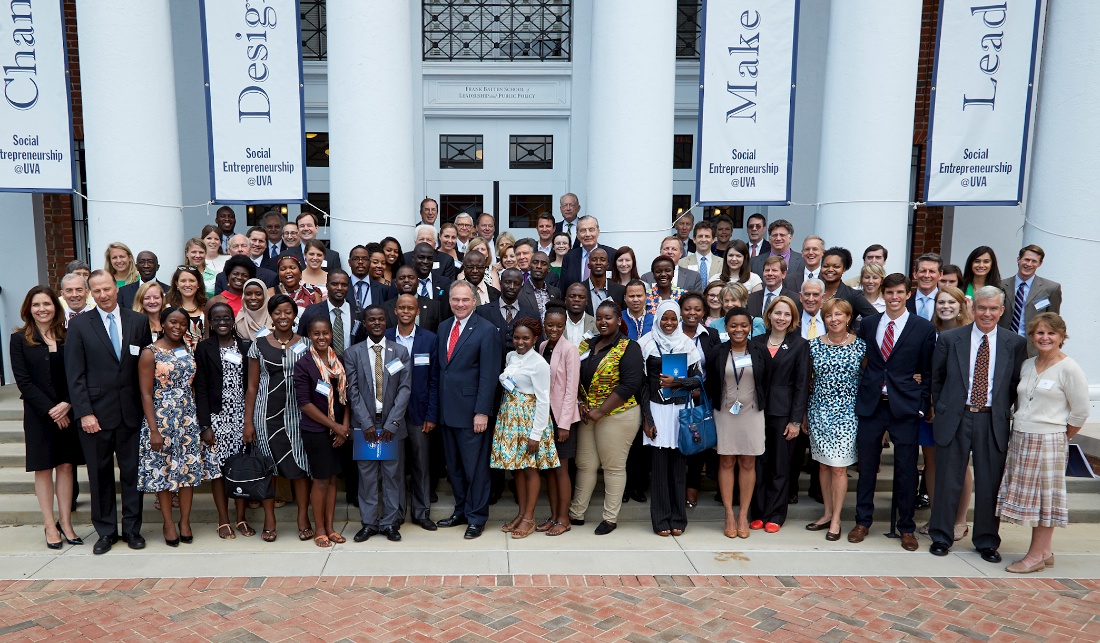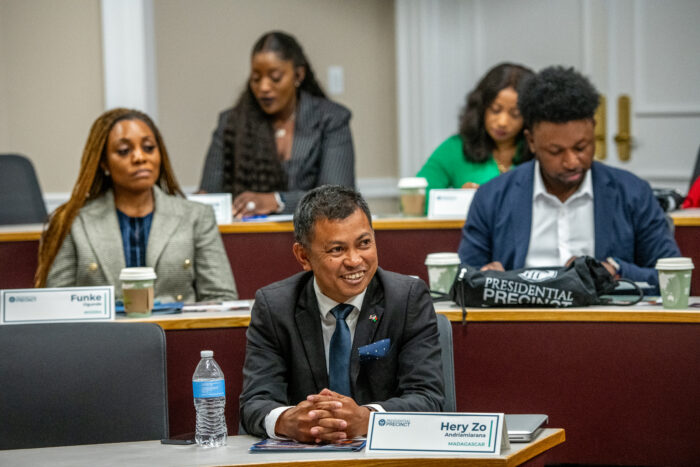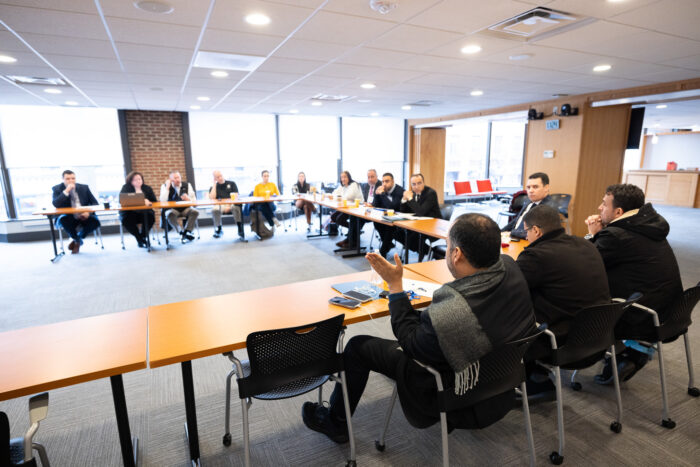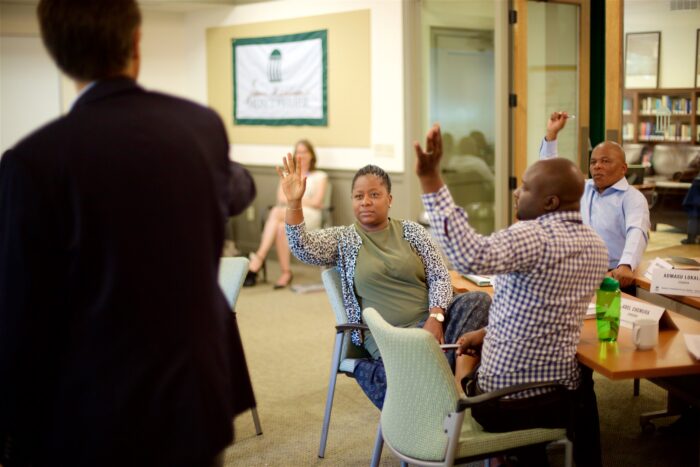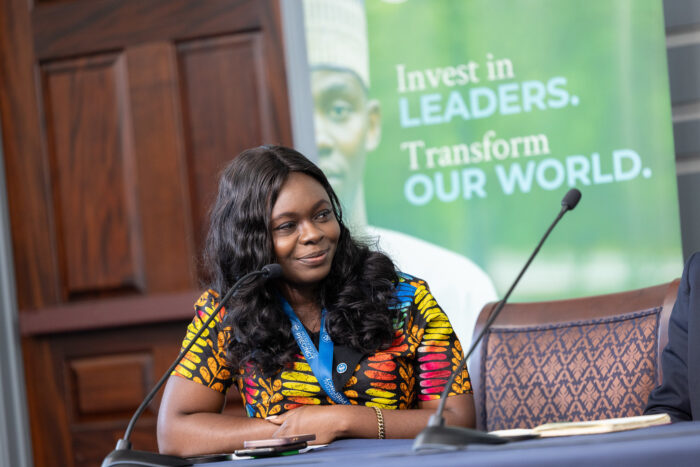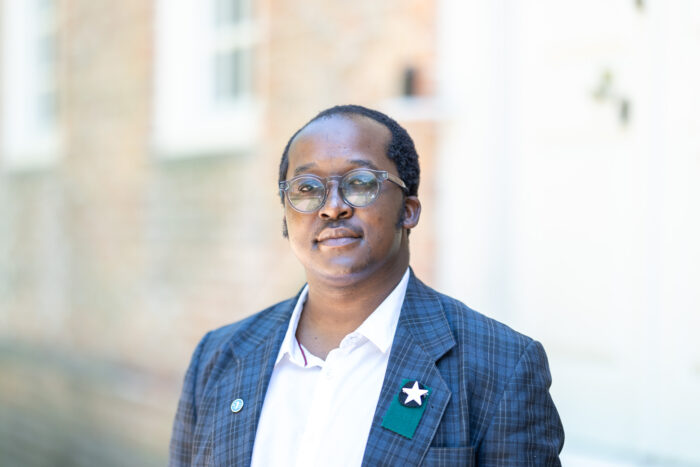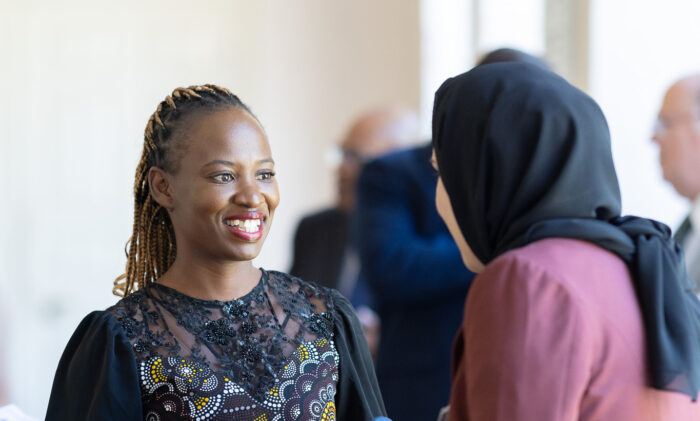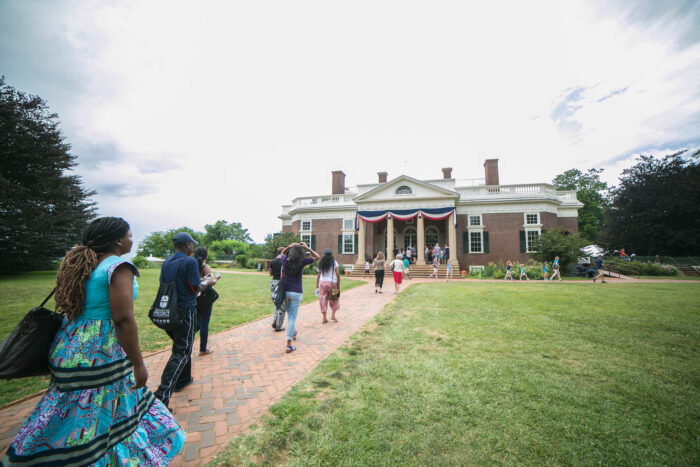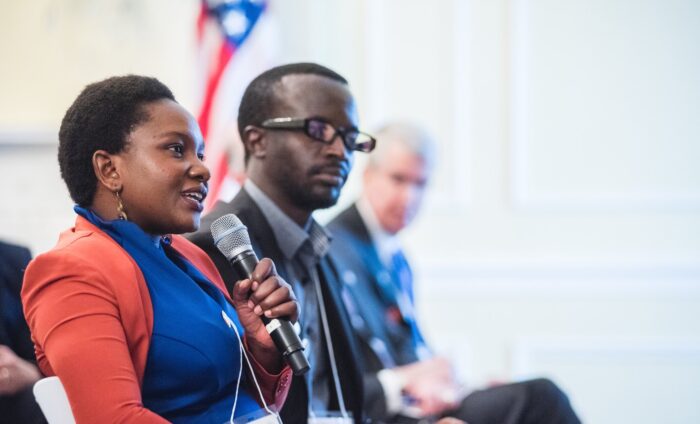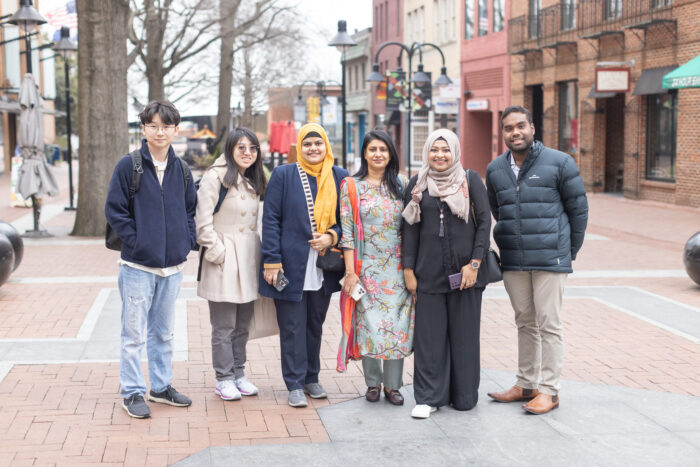The Presidential Precinct Welcomes YALI Fellows to Virginia
With Sen. Tim Kaine delivering the keynote speech on Monday, 25 members of the Young African Leaders Initiative began a six-week leadership, academic and mentoring program that will take them to six of the Commonwealth’s most prestigious locations, including William & Mary. W&M President Taylor Reveley introduced Kaine at the opening luncheon, held at the University of Virginia, where the YALI participants will spend their first two weeks. They will conclude what the White House is calling “an unparalleled opportunity” by spending the final two weeks at William & Mary before meeting with President Barack Obama and other government officials in Washington.
Reveley posed a hypothetical question to those gathered. Do “leaders actually matter or are they just a lot of huffing and puffing and gold braid?”
His answer: “Yes, leaders matter. They matter hugely if they’re effective at leading and if they care about the public interest.
“Without such leaders, it’s almost impossible to accomplish anything that amounts to much. In all reality, effective leaders devoted to the common good are utterly vital to the success of our countries. That’s why, Young African Leaders, you are so enormously important and why we are so happy to have you here in our midst.”
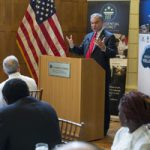
Kaine described the fellowships as a “two-way street,” and welcomed the visit of the 25 young Africans as occurring when “we think the time is right for even more involvement. There is no better way than to have interaction with future generations of African leadership.”
But he cautioned the Fellows that they will only be successful to the degree that they share their views for the future of their countries and the future of your continent once they return home.
“I’m fully confident that you are just the best of the best of your countries and future leadership,” said Assistant Secretary of State for Educational and Cultural Affairs Evan Ryan, who also addressed the group.
At a later roundtable discussion, the Fellows had an intense, wide-ranging exchange, touching on the positives and challenges in their individual countries. By the end of the session, Martine Ekomo-Soignet from the Central African Republic was effusive.
“I am so grateful to be here,” she said. “I want to learn everything you know… I am so, so happy to be here.”
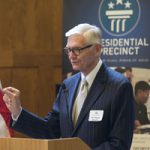
YALI is the White House’s signature African initiative, with 500 of the continent’s most promising young leaders fanning out over the United States. William & Mary is hosting as part of thePresidential Precinct, a consortium that includes theUniversity of Virginia, Thomas Jefferson’s Monticello, James Madison’s Montpelier, James Monroe’s Ash Lawn-Highland and UVA’s Morven. Programs will take place at each site.
The Presidential Precinct’s tailored curriculum is rooted in the theme of civic leadership. While in Virginia, the fellows will take part in training, coursework and mentorship opportunities; participate in workshops, roundtable discussions and more, drawing from the expertise at each of the precinct’s six sites. More than 70 distinguished instructors from academia, the private sector, government, non-governmental organizations and local communities are scheduled to take part.YALI is the White House’s signature African initiative, with 500 of the continent’s most promising young leaders fanning out over the United States. William & Mary is hosting as part of thePresidential Precinct, a consortium that includes theUniversity of Virginia, Thomas Jefferson’s Monticello, James Madison’s Montpelier, James Monroe’s Ash Lawn-Highland and UVA’s Morven. Programs will take place at each site.
The fellows are a highly select group. Fifty thousand women and men, aged 25 to 35, applied for the prestigious fellowship, which is designed to support a very young Africa, where nearly one in three people is between the ages of 10 and 24, and approximately 60 percent of the total population is below the age of 35.
The fellows come from 18 countries across Africa, including Nigeria, Ethiopia, Central African Republic and South Africa. Their backgrounds are as diverse as their countries of origin; they include teachers, journalists and human rights activists, among other professionals.

